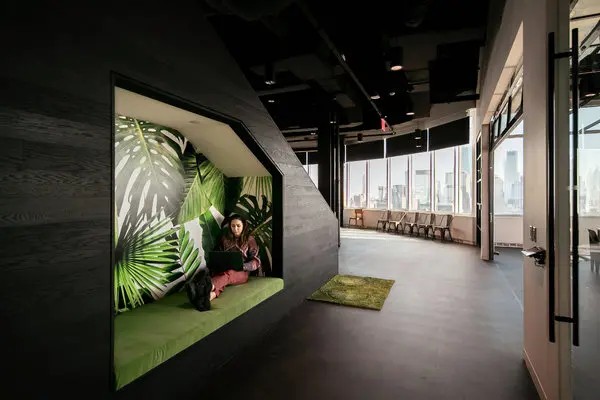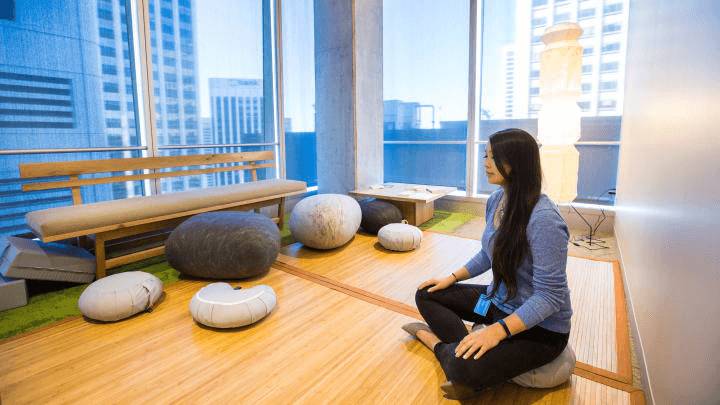Not surprising that focusing on tasks is easier in a quiet room than in a loud one. If noise and interruptions are distracting you at work, your productivity will drop.
Companies are replacing open-space offices with flexible office arrangements. This allows people to choose how they want to work, which is becoming more popular. Open office layouts encourage teamwork but may decrease productivity over time, especially for introverted individuals.
A good solution in today’s modern office environment is to have designated quiet spaces. The reasons for having quieter areas to work in have been well-documented. Today’s flexible workspaces need quiet areas; creativity requires concentration and it's not just for the introverts amongst us.

1. Being quiet promotes staying calm and composed. These, in turn, should result in faster work, higher work quality, and far less stress, which has a productive value of its own.
2. Quiet spaces give you time to reflect and analyse situations. Working in peace and quiet allows for clear thinking about the consequences of actions and the best way to move forward. This type of mindfulness at work is key to maintaining good relationships, reducing overwhelm and ultimately staying healthy.
3. Quiet zones, often separate areas, help prevent the spread of illness, especially important now.
4. Many people are now avoiding traditional boardrooms because they find them intimidating and formal. Staff have the option to not always use formal meeting rooms. They can choose to use more relaxed locations such as offsite venues or breakout spaces. Small offices can use hanging acoustic walls to create custom work and meeting areas, promoting a relaxed collaboration environment.
5. Open spaces in the office can improve collaboration, but privacy is also important for honest discussions with minimal distractions. Privacy pods are small meeting areas located strategically in a space. They offer a comfortable place for staff to discuss personal matters.

So what does the modern workspace that includes quiet spaces look like?
You can make special places for employees to relax or have alone time, like quiet spots or private rooms for mindfulness. This will help them focus better on their work tasks. This helps them concentrate on tasks.
To create quiet areas at work, think about the tasks, space, and team members in your office. Think about the type of work that requires a quiet environment. Evaluate the amount of space you can allocate for quiet zones. Consider the preferences and needs of your team members when creating these areas.
Talk to our team about putting in Soundbox booths or looking at other ways to make quiet and productive work areas. Our contractors can install Soundbox booths for you, or our team can recommend other ways to reach the same goal.
